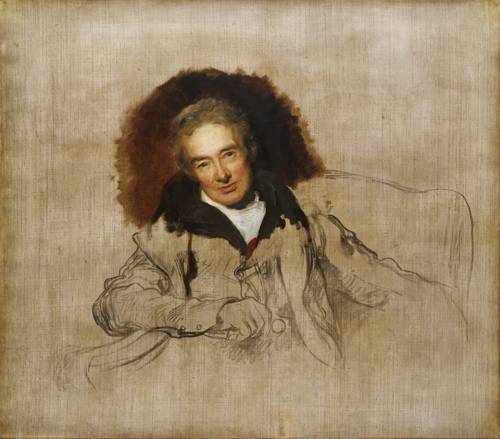
FAQ About William Wilberforce

Who was William Wilberforce?
William Wilberforce was a British politician known for his leadership in the movement to abolish the transatlantic slave trade. Born on August 24, 1759, in Hull, England, he dedicated much of his life to social reform and humanitarian efforts. His work was instrumental in passing the Slave Trade Act of 1807, which led to the abolition of the slave trade in the British Empire.

What role did William Wilberforce play in abolishing the slave trade?
William Wilberforce was a key figure in the abolition of the slave trade through his persistent campaigning in the British Parliament. He introduced numerous bills to abolish the slave trade and mobilized public opinion against it. His efforts came to fruition with the passage of the Slave Trade Act in 1807, and he continued to advocate for the abolition of slavery itself until the Slavery Abolition Act of 1833 was passed, shortly after his death.

How did William Wilberforce become involved in the abolition movement?
Wilberforce became involved in the abolition movement largely due to his friendships with evangelical Christians and reformers, such as Thomas Clarkson and Hannah More. His conversion to evangelical Christianity around 1785 significantly influenced his moral outlook and commitment to social causes, prompting him to champion the abolition of the slave trade as a moral imperative.

What were some challenges William Wilberforce faced in his abolitionist efforts?
William Wilberforce faced significant challenges, including strong opposition from economic interests that benefited from the slave trade, political adversaries, and public apathy. The slave trade was a lucrative business, and many feared economic repercussions if it was abolished. Additionally, Wilberforce's health was often poor, which made his efforts even more arduous.

What was the impact of the Slave Trade Act of 1807?
The Slave Trade Act of 1807 was a landmark legislation that prohibited the slave trade in the British Empire. Although it did not abolish slavery itself, it marked a critical point in the fight against slavery, encouraging similar movements in other countries and laying the groundwork for the eventual abolition of slavery in the British Empire in 1833.

How did William Wilberforce's health affect his political career?
Despite suffering from various illnesses throughout his life, including colitis and possibly ulcerative colitis, Wilberforce maintained a strong commitment to his causes. His health challenges made his political and reformist duties more difficult, yet he persisted, driven by a sense of moral duty and the support of his allies and family.

What were William Wilberforce's other humanitarian efforts?
Aside from his work on abolition, William Wilberforce was involved in various humanitarian causes. He advocated for animal welfare, helping to found the Society for the Prevention of Cruelty to Animals (now RSPCA), promoted education and healthcare reforms, and supported missionary activities and Bible distribution. His broad humanitarian vision reflected his evangelical faith and commitment to social transformation.

When did William Wilberforce die, and how is he commemorated today?
William Wilberforce passed away on July 29, 1833, just three days after hearing that the Slavery Abolition Act would pass. He is commemorated through various monuments and memorials, including a statue in Westminster Abbey. His legacy is also upheld through prestigious awards and institutions named in his honor, celebrating his contributions to human rights and social reform.

What educational background did William Wilberforce have?
William Wilberforce attended Hull Grammar School and later went on to St John's College, Cambridge, where he made connections with future influential figures, including William Pitt the Younger. Although he was a diligent student at times, his love for socializing often overshadowed his academic responsibilities.

How did William Wilberforce's religious beliefs influence his political actions?
Wilberforce's evangelical Christian beliefs deeply influenced his political and social endeavors. After his conversion in the mid-1780s, he regarded his political career as a divine vocation to enact moral and societal reform. This conviction drove his passionate advocacy for the abolition of the slave trade and other humanitarian efforts.

What was the Clapham Sect, and how was Wilberforce involved?
The Clapham Sect was a group of social reformers, largely composed of evangelical Christians, based in Clapham, London. Wilberforce was a leading member, and the group was influential in promoting social reform and tackling issues such as slavery, education, and poverty. Their collaborative efforts were crucial in advancing many of Wilberforce's initiatives.

What contributions did William Wilberforce make to animal welfare?
William Wilberforce was a strong advocate for animal welfare. He was one of the founders of the Society for the Prevention of Cruelty to Animals (now known as the RSPCA), established in 1824. His efforts highlighted the importance of humane treatment of animals and laid the foundation for modern animal rights movements.

Who were William Wilberforce's key allies in the abolitionist movement?
Wilberforce's key allies included Thomas Clarkson, a relentless abolitionist who gathered evidence of the horrors of the slave trade, and Granville Sharp, a pioneer of law reform against slavery. Together with other members of the Clapham Sect and supporters like Olaudah Equiano and Hannah More, they formed a powerful group advocating for the abolition of the slave trade.

What lasting impact did William Wilberforce have on British society?
Wilberforce's work had a profound and lasting impact on British society. His leadership in the abolition of the slave trade laid the groundwork for the broader abolitionist movement, influencing subsequent reforms in Britain and beyond. His dedication to social justice and humanitarian causes helped shape public policy and consciousness, contributing to the progressive evolution of 19th-century Britain.

How did Wilberforce's friendship with William Pitt the Younger influence his career?
William Pitt the Younger, a close friend of Wilberforce since their university days, became a prominent political ally. As Prime Minister, Pitt supported Wilberforce's efforts in Parliament, providing political guidance and helping navigate the complexities of British politics. This friendship proved invaluable in advancing the abolitionist cause and other reforms.

What were the main arguments Wilberforce used against the slave trade?
Wilberforce's arguments against the slave trade were grounded in morality, economic reasoning, and humanitarian perspective. He highlighted the inhumane treatment of enslaved people, the moral hypocrisy of a nation advocating liberty while perpetuating slavery, and the economic inefficiencies of the slave trade compared to free labor.

How is William Wilberforce remembered in Hull, his birthplace?
In Hull, Wilberforce is honored with several memorials, including the Wilberforce House Museum, his childhood home, which details his life and abolitionist work. Hull also recognizes his contributions with the Wilberforce Institute for the Study of Slavery and Emancipation, which continues his legacy of combating slavery and human rights abuses.

Did William Wilberforce write any books or publications?
Yes, William Wilberforce authored several works, with the most notable being "A Practical View of the Prevailing Religious System of Professed Christians." Published in 1797, the book critiqued the lack of true Christian morality in society and emphasized the need for personal faith and social responsibility, reinforcing his call for reform and moral integrity.

What influence did Thomas Clarkson have on Wilberforce's abolitionist pursuits?
Thomas Clarkson played a crucial role in influencing Wilberforce's abolitionist efforts by providing extensive research and evidence of the brutalities of the slave trade. Clarkson's investigative work and dedication to gathering firsthand accounts strengthened the abolitionist argument and supported Wilberforce's legislative initiatives against the slave trade.

How did Wilberforce's efforts influence global abolitionist movements?
Wilberforce's success in the British Parliament served as a powerful example and catalyst for global abolitionist movements. His strategies of leveraging public opinion, moral suasion, and legislative action inspired similar efforts worldwide, contributing to the broader international trend towards the abolition of slavery and human rights advocacy.
